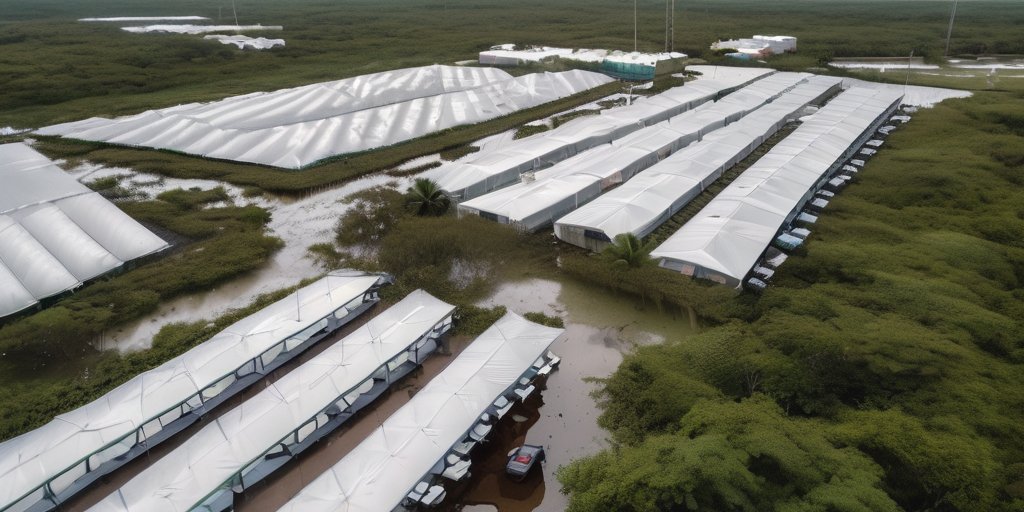The newly-opened detention center in Florida, infamously dubbed “Alligator Alcatraz”, triggered a wave of political tension and humanitarian concerns when a group of Democratic lawmakers was denied entry to inspect the facility. The lawmakers, led by state Rep. Anna Eskamani, expressed their frustration after being stopped by law enforcement officers from various agencies shortly after the first group of detainees arrived. The officials cited ‘safety concerns’ for the restriction but did not provide specific details.
Eskamani questioned the inconsistency of safety when the facility was deemed unsafe for lawmakers but adequate for the detainees. “If it’s unsafe for us, how is it safe for the detainees?” she remarked.
In their subsequent statement, the lawmakers referenced Florida statutes that grant them rights to access state-operated facilities. They remarked, “This is a blatant abuse of power and an attempt to conceal human rights violations from the public eye.”
The controversy surrounding the facility intensified after President Donald Trump’s recent tour of Alligator Alcatraz, shortly followed by severe weather conditions that led to flooding concerns. Eyewitness accounts reported that wires were submerged, and the facility’s integrity appeared questionable amidst high winds and heavy rainfall, which dropped 0.4 to 1.5 inches of rain in less than two hours.
Responding to the flooding concerns, the Florida Division of Emergency Management’s spokesperson assured that vendors promptly rectified water intrusion issues after the storm. Nonetheless, predictions of further rainfall loom ominously as hurricane season continues.
Trump’s involvement in this facility is being contested as the US Department of Homeland Security distanced itself from the Alligator Alcatraz, claiming that it has neither implemented nor funded the project. The detention center was constructed and is operated solely by the state of Florida, with recent developments indicating it can hold up to 3,000 detainees, despite a lack of clarity on how many individuals are currently housed there.
Democratic Rep. LaMonica McIver faced similar struggles at a detention center in Newark, New Jersey, where she was charged with interfering with immigration officers while trying to gain access. Similarly, Newark Mayor Ras Baraka was arrested during the ordeal.
Florida Governor Ron DeSantis defended the detention facility as essential for managing the immigration influx, stating it was designed to be “completely self-contained” and secured. He remarked, “Clearly from a security perspective, if someone escapes, there’s a lot of alligators you’re going to have to contend with.”
Although the detention center is linked to significant costs—projected at $450 million for the first year—DeSantis emphasized that its operations would relieve pressure on local law enforcement and detention facilities.
As criticisms mount surrounding conditions within the center, advocates argue that the facility represents a troubling escalation in Florida’s immigration approach, categorizing it as an infringement of human rights in the name of political theater. As a perfect storm of severe weather and political tension unfolds in Florida, the future of “Alligator Alcatraz” remains uncertain, but it undoubtedly continues to spark heated discussions on immigration and humanitarian rights.
